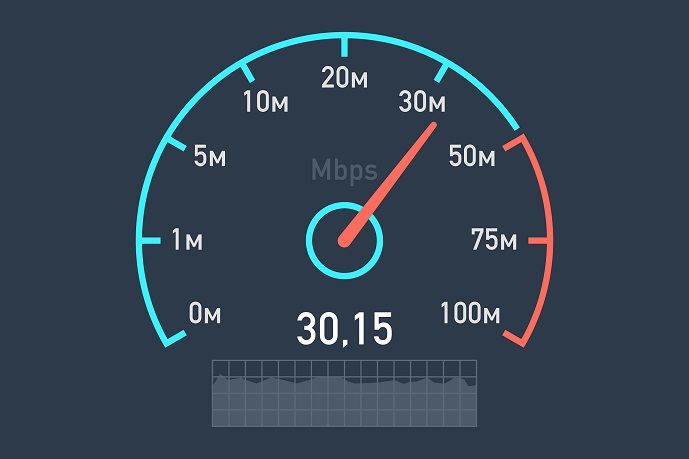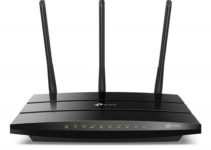Having the best and good internet plan is essential these days. Because who likes getting stuck at midway in the work. You are working, downloading, or uploading anything and you encounter buffering how annoying that is, right?
So while buying any internet plan for your business or even for the home you must have heard the term called “Mbps”. Mbps means megabits per second that refer to bandwidth. All the service providers offer you different Mbps plans. The more mbps you need, the more money you need to spend on it.
But if you are ready to spend so much money and you require that much mbps for you then go ahead and fix your plan, but there is one thing you should keep in mind is that all the internet service providers will not give you the same quality, reliability. Do business owners wonder what is Mbps?
Is it a business VoIP? And how much it is required for their business. Let us understand what Mbps is, how it works, and how to choose it.
What is Mbps?
Mbps stands for “megabits per second”. Mbps (megabits per second) is used to measure internet bandwidth. The more the number of Mbps, the faster is your internet speed. Bandwidth describes the rate of the internet connection. This bandwidth will tell your downloading and uploading speed on your laptop or mobile.

For example, You want to download any song online. So, you visit that specific website and start downloading that song. But the song downloading speed will depend upon your bandwidth of the internet.
If your internet has a good bandwidth then the large MB file will be downloaded in seconds without buffering, while if you have poor bandwidth then it will take some time to download. As I said earlier, the greater the Mbps of your internet faster will be your downloading speed.
Read Also:
What Does Mbps Stand For?
Mbps stands for “megabits per second,” a unit of measurement for bandwidth and throughput on a network. Each megabit is made up of 1 million bits, which are the basic unit of data in computer technology. Mbps is a standard measure of internet connection speed, indicating how much data can be transferred each second.
Water and Hose Analogy
Now, to understand in a much better way about bandwidth, let us understand the concept of Water and Hose Analogy. The Water and Hose analogy use the same method. Suppose you have to fill a swimming pool with water.
It is evident that a larger hose will fill the pool with water per minute faster as compared to a smaller hose. And a smaller hose will take more time than a larger hose. In the case of bandwidths, it is also the same. Greater bandwidth benefits you with faster internet and fast data download on your device.
Greater bandwidth means easy and fast access to websites and apps like Netflix, Amazon Prime, Hotstar. The movie streaming will be quick and with good quality, you will not suffer from buffering in between the movies with good bandwidth. Downloading files or songs will be with extra speed.
Hence, the greater the mbps you have of your internet the great experience and downloading speed you will get. If you are thinking that mbps is related to downloading speed only, but you are wrong. The mbps is also supported when you upload files on the internet.
High mbps of your internet that much quick uploads will happen. If you have some large files to upload then having larger mbps will help you to get it done fast. So it is important you check your internet speed, how much it is providing you download speed and how much upload speed you get.
Contact your internet provider about these mbps details. Before you take any services from them check everything download and upload speeds and how much they are offering. If you find any difference in what they gave you, contact them immediately.
It is possible that download and uploading speed may differ so check both of them. There is a symmetrical speed service offered by providers that gives the same download and upload data speed for both of them.
What Does Mbps Really Mean?
The internet provider offers your internet plan with mbps, means in terms of numbers such as 5 mbps or 10 mbps. What actually is the difference between numbers? Why is it important?
Through light, the data transfers happen over the network. The bit is known as the smallest unit of data. The data transfer rate is measured in terms of seconds. So, if you look for the smallest data transfer then it is one bit per second (1 bps).
If there are many bits together say a thousand bits.
1,000 bits are known as kilobit (Kb)
If the transfer rate is 1,000 bits per second then it is 1 kilobit per second (1Kbps)
1,000 kilobits makes 1 megabit (Mb)
1 megabit summons to 1,000,000 bits
Therefore, 1 mbps means transferring one million bits per second.
A thousand megabits consist of Gigabit (Gb) which is 1 billion bits.
So, if your internet provider says they will transfer 5 mbps to your device it means they are saying, 5 million bits per second will be transferred to your device.
Megabits vs Megabytes
The speeds bits, kilobits, and megabits are most of the time confusing. There are other words related to them such as Kilobytes (KB), bytes (B), Megabytes (MB), and Gigabytes (GB). You must be wondering, are these all connected to Kilobits, Megabits, and Gigabits? Yes! They are, refer below to understand it.
1 byte = 8 bits
1 Kilobyte (KB) = 8 Kilobits (Kb)
1 Megabyte (MB) = 8 Megabits (Mb)
1 Gigabyte (GB) = 8 Gigabits (Gb)
Note: Bits are represented with small “b” while bytes are represented with capital “B”
So when you are downloading or uploading anything, 1Mbps will be able to transfer 8MB of data in a second. So if you are downloading any file say an mp3 file and its size is 16 MB with a 1 mbps speed then the file will be downloaded within 2 seconds.
Mbps and Your Internet Data Plan
If you need an internet plan for your business, then there are 2 things which you should look into: (1) the nature of internet usage, and (2) the number of users. This just the speed you are looking for there are also the other factors that you should consider before buying any service that is accountable for your business.
Connection quality and reliability should also be considered. If you are confused about what to take and what not to. Here we have narrowed down your problem and given you different sizes of bandwidth according to the use.
1 – Social Media and surfing the web (1– 3 Mbps)
2 – Video conferencing (2 – 4 Mbps)
3 – Online video streaming e.g. via Netflix (3 – 5 Mbps)
4 – Streaming videos in HD (5 – 7 Mbps)
You must have noticed that mbps are mentioned there. It is because mbps define the maximum speed and average speed is not given to you. It is rarely possible that upload and download speeds will reach as the promised size.
It will tend to differ most of the time between 50% and 80% to the bandwidth you have promised. If you need any internet service for your online business then Knowledgeable Fusion advisors will help you out with it.
Understanding Bits and Bytes
To fully grasp Mbps, it’s important to differentiate between bits and bytes. A bit is the smallest unit of data in computing, while a byte consists of 8 bits. Internet speeds are measured in bits per second, whereas file sizes are typically measured in bytes. This difference is crucial when interpreting internet speeds and data sizes.
How Is Mbps Defined?
- Bandwidth: Mbps is often used to describe the bandwidth of an internet connection, which is the maximum rate at which data can be downloaded or uploaded over a connection.
- Throughput: Mbps can also refer to throughput, which is the actual speed achieved during data transfer, often lower than the maximum bandwidth due to various factors.
Why Is Mbps Important?
Understanding the Mbps of your internet connection is essential for several reasons:
- Determining Internet Speed: It helps in evaluating whether your internet speed is suitable for your online activities.
- Comparing Plans: Mbps is a key factor when comparing internet service providers and plans.
- Managing Expectations: Knowing your Mbps helps set realistic expectations for download and upload times.
How Internet Speeds Affect Online Activities
The Mbps of your connection impacts your online experience:
- Streaming: Higher Mbps is required for streaming high-definition (HD) or 4K content.
- Gaming: Online gaming requires a stable and fast connection, typically demanding higher Mbps for a smoother experience.
- Downloading and Uploading: The time it takes to download or upload files is directly related to your internet speed.
Factors Affecting Internet Speed
Several factors can influence the Mbps you achieve:
- Type of Connection: Fiber-optic, DSL, and cable connections offer different speed ranges.
- Network Congestion: The number of devices connected and using the network simultaneously.
- ISP Throttling: Some ISPs may intentionally slow down internet speeds.
How to Measure Your Internet Speed
You can measure your internet speed using online speed test tools. These tools give you an overview of your connection’s download and upload speeds, measured in Mbps.
Mbps vs. Gbps
With advancements in technology, gigabit internet speeds are becoming more common. One gigabit per second (Gbps) is equal to 1,000 Mbps. Gbps speeds are typically found in business settings or areas with advanced internet infrastructure.
FAQs
- What is a good Mbps speed for home internet? A speed of 25-100 Mbps is typically sufficient for most home internet users.
- Does higher Mbps mean faster internet? Yes, higher Mbps usually means a faster internet connection.
- How many Mbps do I need for streaming? Streaming HD content generally requires at least 5-10 Mbps, while 4K streaming needs at least 25 Mbps.
In summary, Mbps is a fundamental unit for measuring internet speed, playing a vital role in how we experience the digital world. From streaming and gaming to general browsing, understanding Mbps helps users ensure their internet connection is fit for purpose, enhancing their overall online experience.
Read Also:
Conclusion
That was all about Mbps you need to know. Choosing a proper plan is very important as it will save your lot of time and also save you from a lot of buffering. Contact your service provider for a better plan to check all the features before you fix anything to buy.
Now you can select any internet plan for your business without any confusion. Hoping the article was helpful for you. If you still have any doubts then please let us know.


